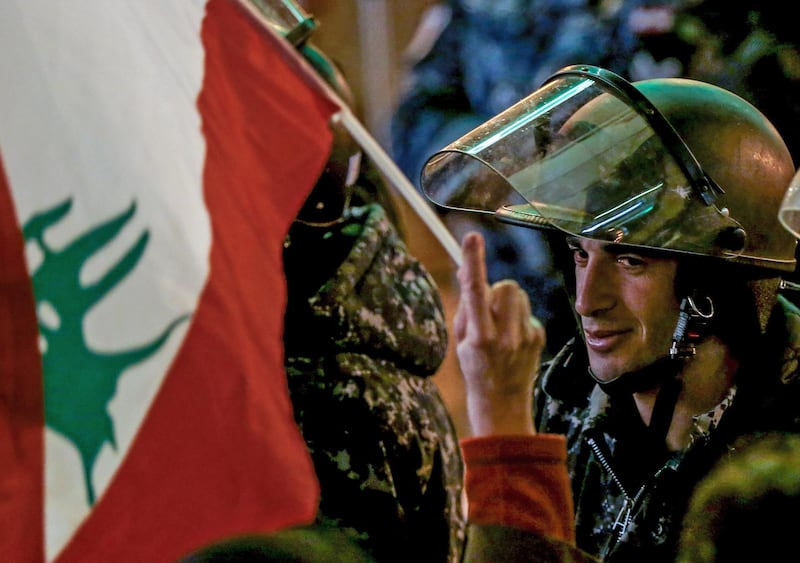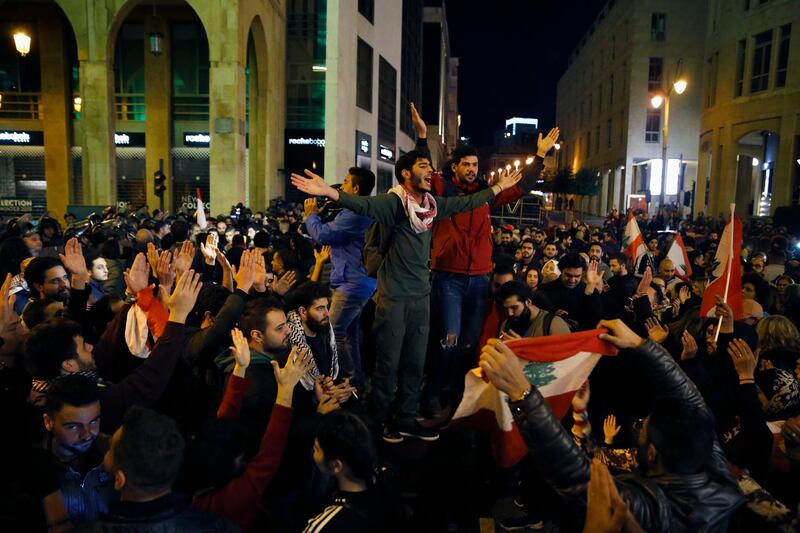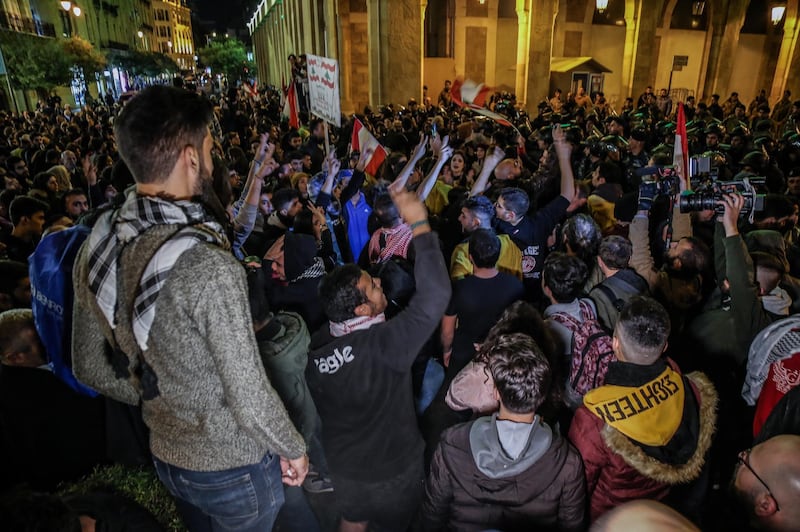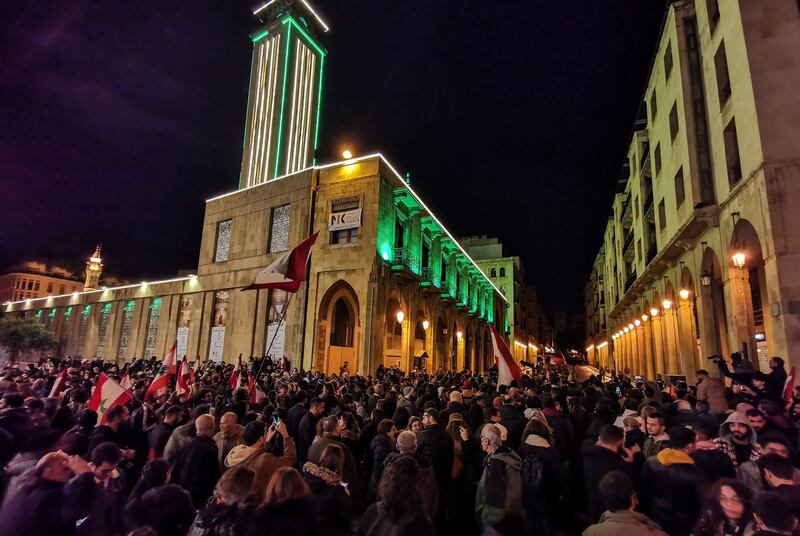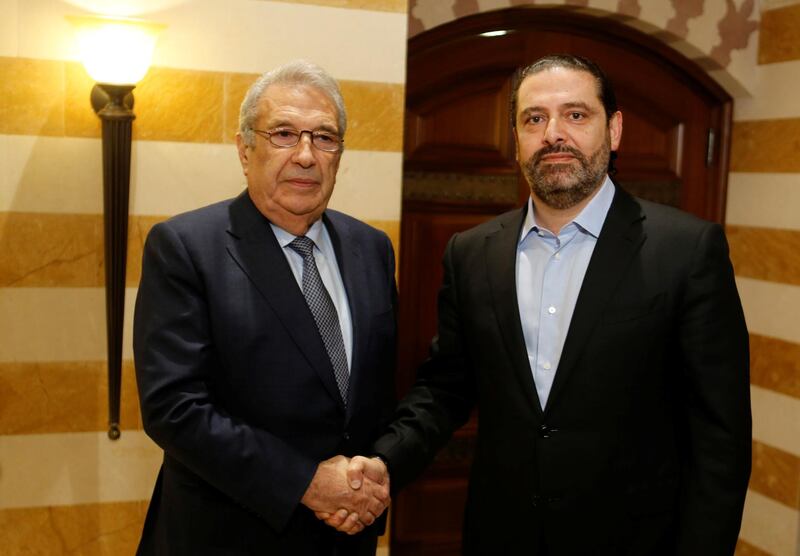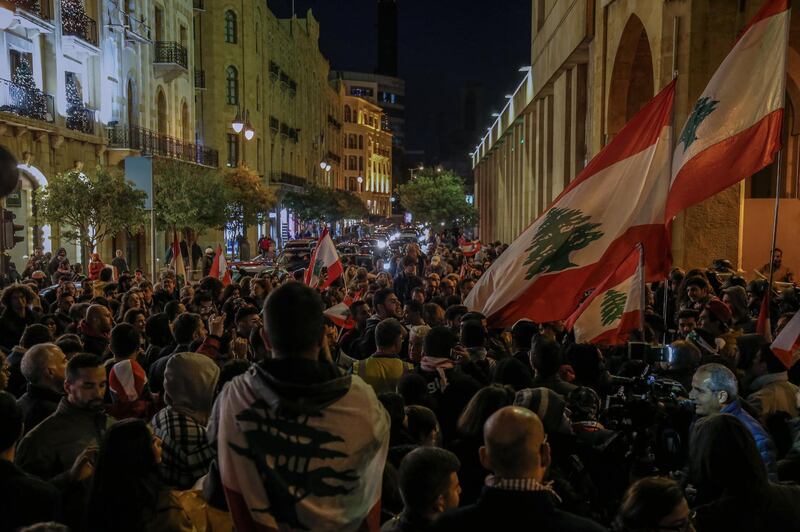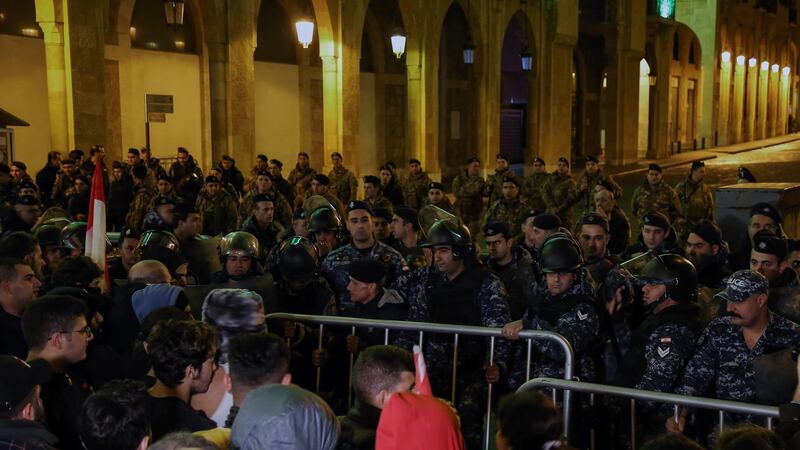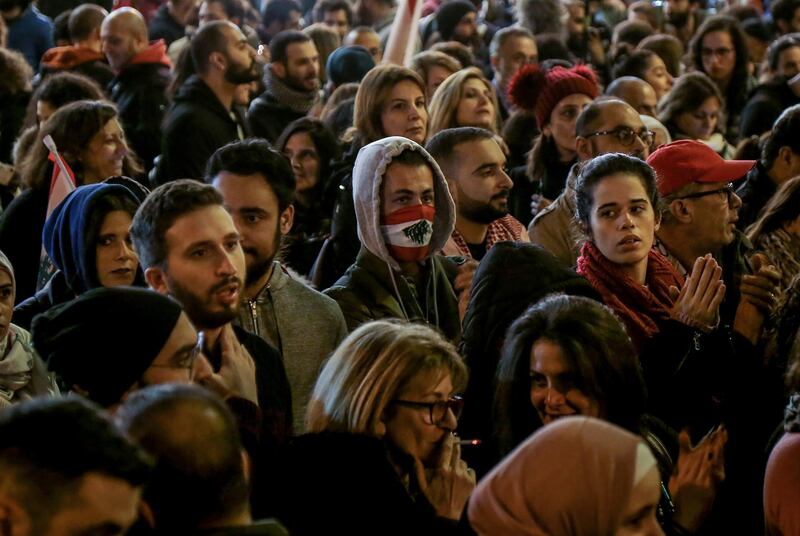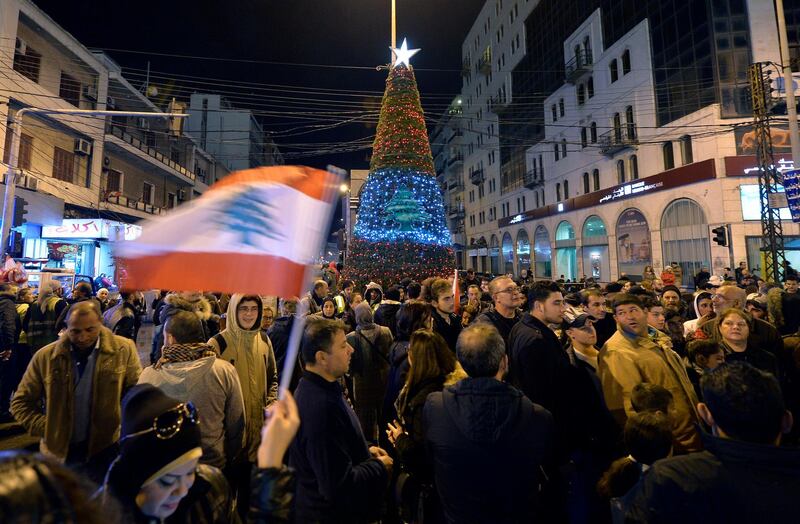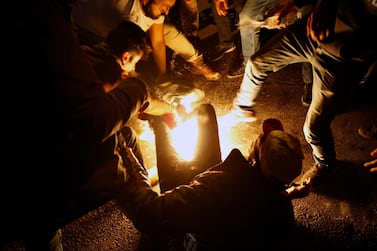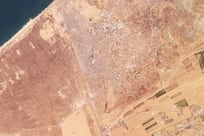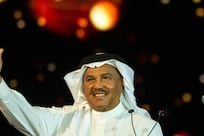Lebanese businessman Samir Khatib on Sunday withdrew from consideration for the prime minister’s post, possibly prolonging the country’s political and economic crisis after nearly two months of anti-government protests.
Mr Khatib, 72, who had been considered certain to be endorsed by Parliament when it convened on Monday, announced his decision after a meeting Lebanon’s top Sunni religious authority.
He said Grand Mufti Abdellatif Deryan told him that "a consensus had been reached to name Saad Hariri as prime minister to form the next government".
Mr Khatib said he would head to Mr Hariri's Beirut residence to inform him of this "because he is the one who nominated me to form the new government".
Lebanese President Michel Aoun on Sunday evening delayed by one week consultations with politicians to designate a new prime minister. The new date is December 16.
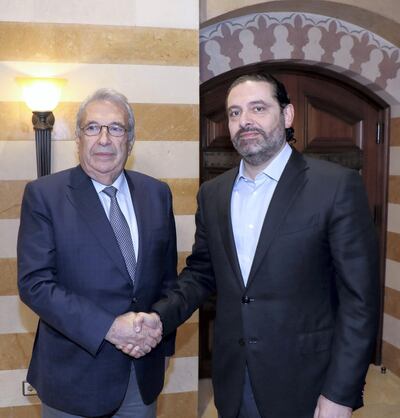
The talks, which had been scheduled for Monday, were postponed after Mr Khatib withdrew his candidacy.
Mr Hariri leads a caretaker government after resigning on October 29. He and Mr Khatib are Sunni Muslims, which is a requirement for the prime minister’s post under Lebanon’s political system.
Attempts to have Mr Hariri form the new Cabinet failed after parties that had been part of the government rejected his demand that the new one be made up of technocrats, in keeping with protesters’ demands.
Among the groups insisting that politicians be included were the powerful Hezbollah and its ally, President Michel Aoun.
Other candidates suggested for the prime minister's post have been rejected by protesters.
Lebanon desperately needs a new government to rebuild trust with protesters who demand a Cabinet of independent experts, and with international donors to provide financial aid.
The economy is in freefall and businesses are struggling with a US dollar liquidity crisis.
Mr Hariri on Saturday sent letters to the leaders of Germany, Spain and Britain asking for aid to allow Lebanon to continue importing essential goods.
On Friday he sent similar appeals to countries including Saudi Arabia, the US, Russia and China.
Mr Hariri, 49, has been prime minister on and off since 2009, stepping down and returning on two previous occasions.
He in the footsteps of his father, the assassinated premier Rafik Hariri.
